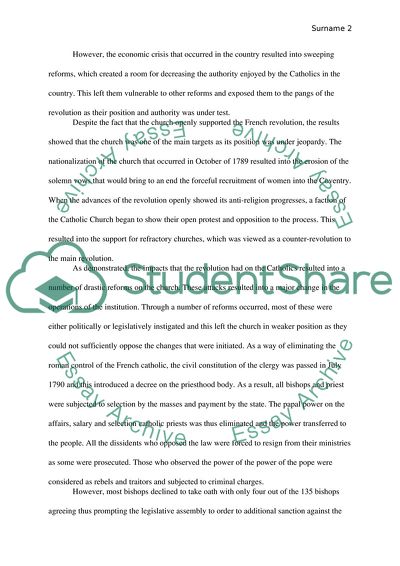Cite this document
(Role of the Religion in the French Revolution Essay Example | Topics and Well Written Essays - 2250 words, n.d.)
Role of the Religion in the French Revolution Essay Example | Topics and Well Written Essays - 2250 words. https://studentshare.org/history/1808635-instruction
Role of the Religion in the French Revolution Essay Example | Topics and Well Written Essays - 2250 words. https://studentshare.org/history/1808635-instruction
(Role of the Religion in the French Revolution Essay Example | Topics and Well Written Essays - 2250 Words)
Role of the Religion in the French Revolution Essay Example | Topics and Well Written Essays - 2250 Words. https://studentshare.org/history/1808635-instruction.
Role of the Religion in the French Revolution Essay Example | Topics and Well Written Essays - 2250 Words. https://studentshare.org/history/1808635-instruction.
“Role of the Religion in the French Revolution Essay Example | Topics and Well Written Essays - 2250 Words”. https://studentshare.org/history/1808635-instruction.


